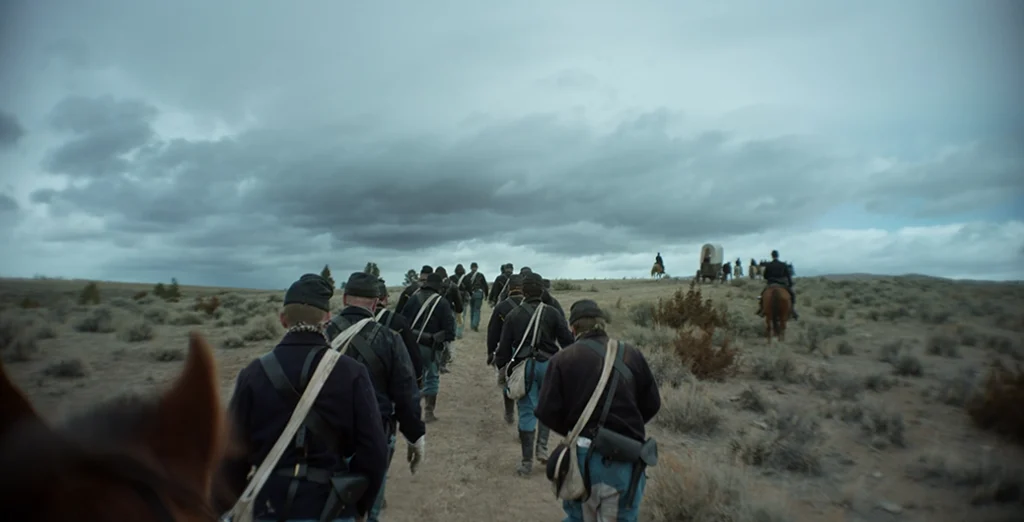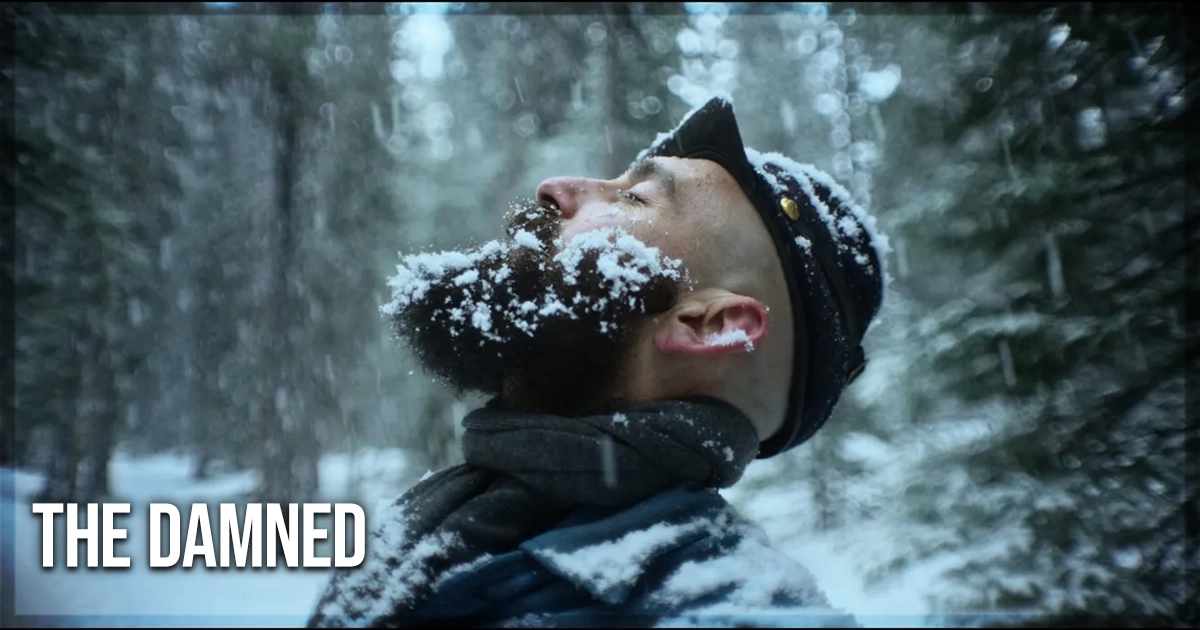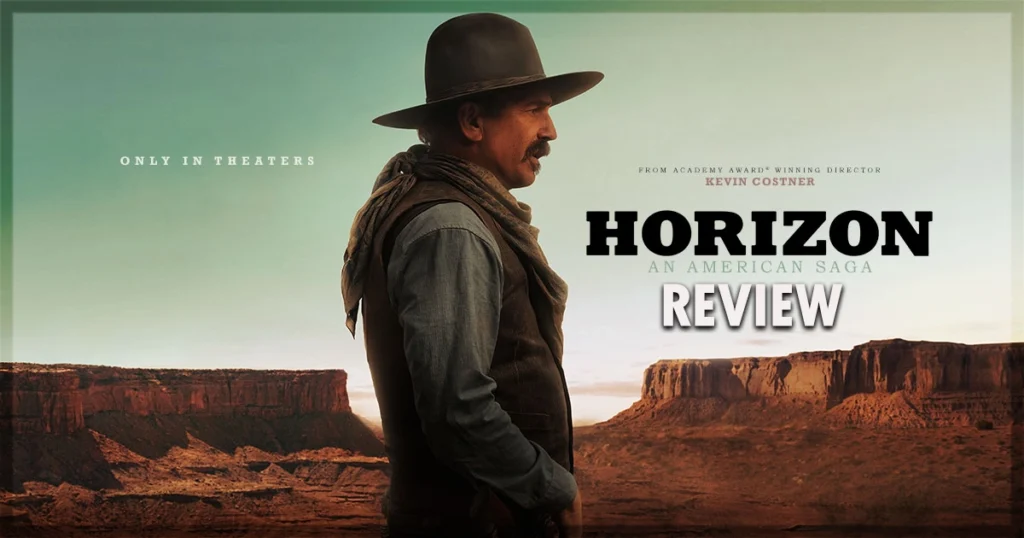Roberto Minervini shared the best director prize in the Un Certain Regard strand of this year’s Cannes Film Festival for this mumblecore-style film about soldiers in the Wild West during the American Civil War. It’s the flipside to Kevin Costner’s Horizon: An American Saga (reviewed separately), which has broadly the same subject, the same pervasive sense of dread, and approximately a billion times the budget. But the small scale and the fact the characters use the actor’s own names gives The Damned a sense of weary authenticity that a large budget couldn’t reach. It’s not just that war is hell, but when hell is this uncomfortable it’s much worse. It’s a quietly remarkable film.

They’re a US Army regiment that’s been sent to the wider edges of Union territory – as opposed to the Confederacy, and also land which has not yet formed states and joined the Union – to well, see what there is to see. Their presence is meant as a deterrent to any potential enemies, whether it’s the Confederate army planning sneak attacks or the indigenous Americans who are obviously unhappy about being colonized. But for the most part, nothing happens.
Men walk in file and keep their eyes peeled on empty horizons. Occasionally, one of the carts gets in trouble at a ford, and the men all rush forward to lend a hand. They camp and set up cookfires. Coffee leaks out of a tin cup, and another man holds his underneath so nothing is wasted. A baseball game is played one night at sunset. They talk about God, their salaries, and whether their being in this devastating space has any real meaning. Whether their boredom and suffering serve any purpose and, if so, precisely what that could be. And just as you start thinking this is a little too bucolic, there’s an attack, many of the men are shot dead, and the survivors must scatter for what cover there is – in scrubland and behind narrow trees – and do their best to fight back.
During the battle, the soldier played by Cuyler Ballenger, who has a bald head and a black beard, finds himself on the side of a low hill covered in brush, with the gunfire sailing over his head. The enemy is entirely unseen, and the battle takes place largely in silence, with the only noise being the shouts of the men and the bangs of the gunfire. So he curls himself up into the side of the hill in the fetal position, looking for all the world like a baby bird still inside the egg, and waits for things to be over. It’s an arresting image of stillness and calm acceptance, not cowardice or fear. And it’s this strange and unforgettable position that somehow exemplifies the whole mood of this film.
Andrea Arnold directed an adaptation of Wuthering Heights which was described by a better critic than me as feeling like the story which was adapted into the book. The Damned has that same feeling – here is the story from which the war movies have been adapted. The actors are a world-class collection of faces and largely non-professionals, but that works quite well because, in one sense, they are not really acting. They really are camping on the cold ground and, trying not to trip over their own feet and wondering how long it will take the fire to warm them up. The combination of tedium, physical discomfort and terror is well known to anyone who’s been in the armed forces, and it’s a surprise to see The Damned capture this so completely in a period setting.
The Damned recently screened at the Cannes Film Festival.
Learn more about the movie at the Cannes website for the title.
You might also like…
‘Horizon: An American Saga – Chapter 1’ Review: Costner’s Riveting Epic (Cannes)


